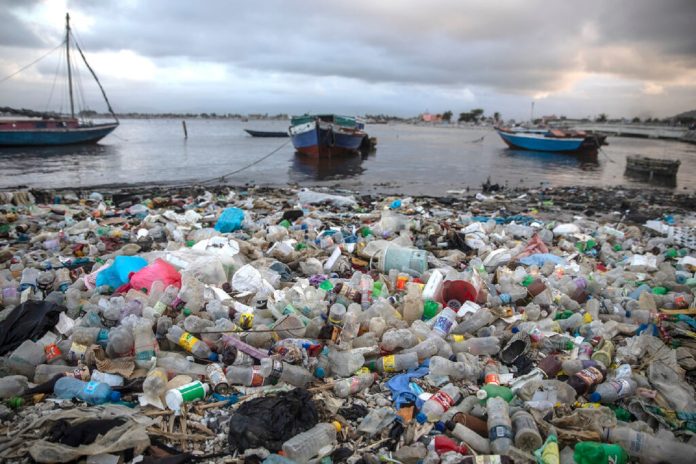Over 341,000 pieces of waste were recorded on 137 Tunisian beaches during the first phase of the “Adopt a Beach” program, led by WWF North Africa. The initiative aims to monitor and collect data on marine litter while raising awareness about plastic pollution in the Mediterranean.
According to WWF North Africa, the efforts of 91 teams mobilized by the program have made it possible to identify the type and quantity of waste on the targeted beaches while simultaneously cleaning them.
Most of the waste found consists of cigarette butts, pieces of glass or ceramic, plastic bottle caps and lids, glass bottles, plastic bag remnants, plastic bottles, and metal cans.
WWF reports that Tunisia is one of the Mediterranean countries most affected by plastic pollution. According to the Tunisian Ministry of Environment, the country generates over 2.5 million tons of waste per year, with plastic waste representing around 10% of this total. Approximately 500,000 tons of plastic waste end up in the sea annually, causing severe environmental damage to marine ecosystems and posing risks to human health.
Launched in collaboration with WWF offices in Greece and Turkey, the “Adopt a Beach” program encourages volunteers, schools, and organizations to “adopt” specific beaches in Tunisia, Greece, and Turkey to monitor and collect data on marine litter.
In Tunisia, this national-scale project aims to create an integrated national platform to record plastic pollution on beaches with the participation of active citizens. Participating groups were trained by WWF North Africa on proper monitoring procedures. Actions are repeated at regular intervals on each adopted beach, helping groups identify appropriate solutions and promote behavioral change regarding plastics.
8,000 m³ of waste thrown on beaches every day!
The head of the mechanical beach cleaning program, Nabil Mokhtar, revealed that during the summer season, Tunisian beaches see a daily collection of around 8,000 cubic meters of waste left by visitors, 85% of which is plastic.
In a statement to TAP agency about the progress of the mechanical beach cleaning program, he specified that each cleaning intervention collects about 600 cubic meters of waste, emphasizing the need for visitor awareness and the refusal to litter, due to the harmful environmental impact and the difficulty of waste decomposition.
He also stated that the program, which continued until the end of September 2025, reached 80% completion, with funding of approximately 1.8 million dinars, 60% covered by the Tourist Area Protection Fund, and the remainder by the Agency for Coastal Protection and Development (APAL).
The interventions cover 82 public beaches and 15 tourist beaches.
Mokhtar explained that the program, carried out by APAL in collaboration with the Tourist Area Protection Fund, involves mechanical and manual cleaning operations on 133 beaches along the coastline, conducted through multiple interventions.
Source: africanmanager




